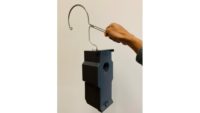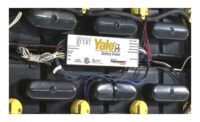The 20% Solution
Bimbo Bakeries’ plant in Fort Worth, Texas, cranks out more than 12 million baked goods a week, but when it came to producing buns, the bakery just couldn’t keep up with burgeoning demands from its retail and foodservice customers.
In the past, when wholesale baking companies like Bimbo wanted to expand capacity, they often added another line or built another plant. However, such major products often took months, if not years, to grow from the drawing board. In today’s fast-changing industry, companies have to learn to literally change on the fly.
That’s exactly what Bimbo Bakeries did to its bun line last year. To expedite the process, the company made a slight change in philosophy from installing a new line to upgrading its existing one to make it more efficient, notes Donald Van Tassle, Bimbo’s new vice president of manufacturing, support and services.
“It’s important to improve the assets that you have,” says Van Tassle, the plant’s former director of operations who moved to his new job on Oct. 1. “The strategy we have here is to blend existing assets with new assets to make the line run better.”
Specifically, Bimbo Bakeries’ plan was to reduce downtime, streamline changeovers, provide greater product versatility and boost capacity of the line by 20%, Van Tassle says.
“We’re not quite there yet, but we’re getting there,” he says.
After evaluating the line capabilities, the management team decided to replace the mixer, dividers and overhead cooler. They also overhauled the tray proofer, which had a tendency to jam or crash and was a major source of downtime. Finally, the plant expanded it’s the packaging area because it was a major bottleneck on the line.
Today, the line has a larger 2,500-lb. horizontal mixer and two extruder dividers each with four-bar rounders. The packaging area now has two bulk packers and three slicer/baggers that can each produce 65 packages a minute. The company also added an automatic basket loader and unloader to streamline labor in the packaging area.
Overall, the Fort Worth plant is divided into two bakeries with an adjacent central distribution warehouse located in the middle of the plant. The north bakery houses four lines that produce Mrs Baird’s signature, hand-twisted white bread at rates at up to 240 loaves a minute. In addition to the revamped bun line, two other lines produce honeybuns, Danish, doughnuts, rolls and coneys.
Meanwhile, the south bakery houses an Oroweat variety bread line that produces 120 loaves minute and a line that makes hamburger buns, hot dog buns and hoagies for the company’s quick-service restaurant accounts.
Van Tassle notes that the bakery has made other improvements such as adding an automatic pan storage-and-retrieval system to the Mrs Baird’s bread line and a new heating and air conditioning system to keep plant temperatures moderate, especially during Texas’ hot summer months.
During SF&WB’s visit in September, the plant also was adding a state-of-the-art research and development facility, which will serve as the company’s main product development center for Bimbo’s businesses in the United States. The center was scheduled to open in October.
The Fort Worth plant, Van Tassle notes, was one of the first U.S. facilities to receive the coveted Triple Green Rating from Grupo Bimbo. That comprehensive audit is much more extensive than those done by the American Institute of Baking and rates the bakery on food safety, production quality, employee safety, good manufacturing practices, sanitation, maintenance and more.
“It’s all about getting the right people in the right places,” Van Tassle says. “We will be successful if we focus on doing that.” SF&WB



